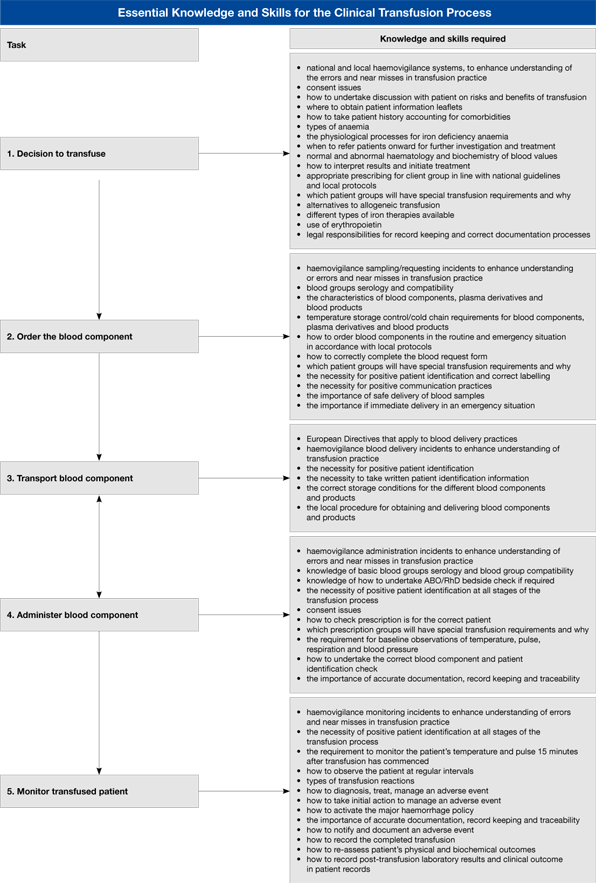Submitted by obuadmin on
It is helpful to have data on transfusion practices before the implementation of the education programme. Transfusion practice audits, and reviews of errors and near misses reported to the HTC or the haemovigilance system will provide valuable information on where training and education should be targeted.
The practices that should be audited derive from the activities identified in the essential steps in the clinical transfusion process. (Fig 2.1)
Member States may have different names for similar jobs, and some job titles will not exist in some countries. There are differences among member states and local hospitals as to which staff group undertake particular tasks.
Figure 10.2 identifies the knowledge required for each task. Areas of knowledge and procedures that should be evaluated are:
- Knowledge of blood group serology
- Knowledge of characteristics of blood components
- Procedures for blood sampling and labelling
- Procedures for storage of blood components
- Procedures for collection and delivery of blood components
- Checking and administration procedures for blood components
- Procedures for monitoring the transfused patient
- Understanding of adverse events in transfusion
It is essential to make a realistic assessment of the resources (personnel and financial) required for collecting baseline data and for an ongoing audit programme to ensure standards are being maintained. Each hospital should have a clinical audit department (or a similar function as part of quality management) that should be able to provide advice.
Two methods often used to gather information about existing knowledge and practice are questionnaires and observation of practice.
Questionnaires should reflect the required standards of practice and may differ for each group of staff. While a questionnaire can be a relatively simple way to obtain information, there are known problems. These include poor response rate, deficient completion and the temptation to give the ‘correct’ rather than a ‘true’ response.
Observational audit of transfusion practices can yield very useful information, but is labour intensive and difficult to undertake. Direct observation can make staff alter their practice, however there is evidence to suggest that staff become used to the observer and continue with their usual practice.
Figure 10.2 Essential knowledge and skills for the clinical transfusion process

